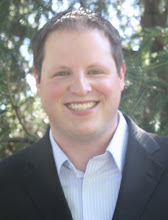Why numbers on the homepage (or the lack thereof) equate to inclusiveness or exclusiveness
It was this (http://tinyurl.com/c3a3la) article that got me thinking about why some social networking sites are more popular than others. What makes Facebook or MySpace more popular than say, Twitter? It would seem that Twitter is easier to use, less intrusive, and less time consuming than the other sites out there, but why is it not as popular as the others?
Because Twitter is a community for geeks, by geeks, and nothing but geeks whereas sites like Facebook and MySpace cater to the masses. One very important and overlooked feature all of these sites are lacking is a numerical user ID which I think corresponds to more inclusiveness. How? When sites dole out numerical user IDs they are automatically creating a hierarchy of users where the lower ID’d users feel they have a sense of authority, entitlement, and superiority over other users. This quickly turns the non-geeks off (and by contrast either doesn’t bother non-geeks or actually encourages them) and ends up attracting only the sort of person who cares about that sort of thing. Just look at the threads that show up on Slashdot from time to time doing a roll call for the lowest active user ID. Or on flyertalk (online discussion board) where folks do the same but for frequent flyer numbers. To the average, non-geek user this is exclusionary, which in turn turns them off of the site. Those users that are part of the popular, in-crowd at the site stick around and those that aren’t quickly leave.
Look at any site that has discussion forums (like flyertalk, vwvortex, or even tuckermax) and you’ll see interesting interactions between users with higher post counts and those with lower post counts. Often times there will be arguments (after all, who doesn’t love to argue in anonymity?) between the veterans (those with higher post counts) and newbies (those with lower post counts) and inevitably the argument will turn ad hominem with the veteran dismissing the opinion of the newbie based solely on the fact that the poster obviously doesn’t know what they are talking about because they haven’t posted enough. This, of course, is a catch-22 because how can someone get “experience” if they are so discouraged to post in the first place?
Facebook has avoided this whereas Twitter has not, although Twitter does this in a different way. When you log into Twitter, under your username (hey, at least there isn’t a numerical user ID) there is a count of “following”, “followers”, and “updates”. This is your defacto rank as a twit (tweeter? Twitterer?). Facebook hides (i.e. not on the main page) how many friends you have and doesn’t track how many times you’ve posted or updated. This, in my opinion, allows for a more open and inclusive community where everyone is truly equal.
Now, I’m sure that the creators of these sites didn’t intend to exclude or alienate users (ok, maybe not in the case of Slashdot), but perhaps it is human nature to want to compare ourselves to one another. After all, society as a whole is hierarchical in nature, so why shouldn’t our online communities be? I think the social networking sites allow folks to ignore those social norms and just connect without the pressure of being on top or ahead of someone else.
Of course, this post ignores all of the technical reasons why one social networking site is better than the other as well as the social reasons. And, one can’t discount all the features, apps, etc that come along too. But, I wonder if the numerical user ID, post counts, etc prevent some sites from reaching that tipping point?
Friday, May 1, 2009
Subscribe to:
Post Comments (Atom)

GAYATRI 3
ReplyDeleteGAYATRI 4
ReplyDeleteGAYATRI 5
ReplyDelete